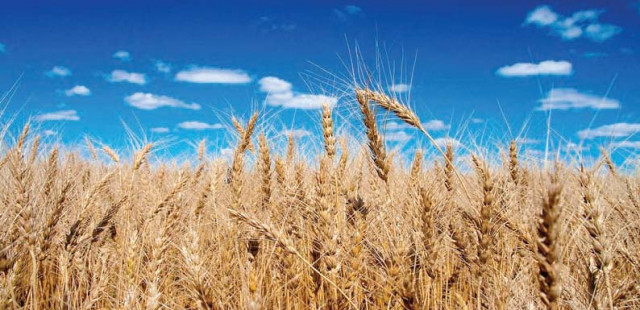Farmers reluctant to plant wheat as input cost rises
Delay in cultivation may hit production target this season

In this peak sowing time, majority of the farmers are in two minds as they believe the cost of cultivation will cross the wheat support price of Rs1,050 per 40 kg. According to farmer bodies, wheat cultivation has so far crossed only 15% of the target in Punjab, with some believing other provinces will also take the cue from the biggest producer.
“We are heading towards a food crisis, as wheat stocks are shrinking and the government’s indifference can hit production estimates for the next crop,” said Ibrahim Mughal, Chairman of Agri Forum Pakistan – a farmer lobby group.
Pakistan needed 26 million tons of wheat annually, but if the harvest even reached 23 million tons next year, then it would be a great achievement, he said.
“With less-than-required production, the country will need to import the staple, which will be a waste of money,” Mughal said.
He said the ideal sowing time for wheat in Punjab was November 20, but out of total estimated area of 16.8 million acres, hardly 15% had been cultivated. “Late sowing will definitely affect the per acre yield, resulting in lower production.”
Sindh has set the harvest target at 3.5 million tons, Khyber-Pakhtunkhwa two million tons and Balochistan one million tons. The highest wheat production the country achieved was 24.2 million tons in 2011.
The Kisan Board of Pakistan, the largest farmer body in the country, also expressed fears that wheat production would drop sharply.
“Majority of the farmers are not sowing wheat this season and the remaining are doing it half-heartedly, as the cost of per acre yield has crossed roughly Rs20,000,” said Kisan Board spokesperson Haji Ramzan.
Prices of fertiliser, diesel and electricity climbed around 35% and many farmers had not been able to pay electricity bills for tube wells, which could lead to disconnection of power supply, he said.
“Water availability is not expected to be satisfactory this season, this along with other aspects is forcing the farmers not to go for wheat cultivation,” he added. “We expect the next crop to fall up to 25% compared to the previous year.”
However, the Punjab food department is unmoved by farmer concerns. “Everything is fine as far as support price is concerned, it is also well above the production cost for farmers,” said Irfan Ali, Food Secretary of Punjab.
As the food department looked to sell wheat in the international market, Ali said sales of Pakistani wheat would increase due to rising demand.
Published in The Express Tribune, November 13th, 2012.


















COMMENTS
Comments are moderated and generally will be posted if they are on-topic and not abusive.
For more information, please see our Comments FAQ